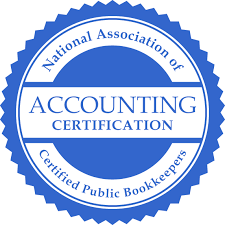Is a certificate of accounting worth it? The answer for most people is yes. Let's say you're wanting to do accounting work for a medical clinic or hospital. Your accreditation by having a certificate of accounting could be the difference for you getting a job and someone who does not have the certificate of accounting getting the position.
There are a lot of business owners who need bookkeeping services for their businesses in Texas. For example, if you developed a specialty in bookkeeping and accountant skills for the several TBI facilities in The Dallas Fort Worth Texas area then you have your certificate of accounting and expertise in the TBI facility Dallas Fort Worth Texas then you will definitely win the accounting position or the bookkeeping position.
That makes sense - Right?

However, if you're just starting out in accounting, or if you're trying to differentiate yourself from other bookholders, the various accounting or technology certifications can be worthwhile as they can allow you to charge more, market your services more effectively, and actually do a better job. die. The distinctions between accounting and bookkeeping are subtle but essential when considering a career in either field. Accountants record the daily financial transactions of a company.
Accountants, on the other hand, focus more on the big picture. The two careers are similar, and certified accountants and non-certified accountants often work side by side. These careers require many of the same skills and attributes. However, there are significant differences, such as the work done outside of the workplace that is often a necessity to succeed.
The following analysis compares educational requirements, required skills, typical starting salaries, and job prospects for accounting and books. You can become an accountant at the end of high school if you show that you are good with numbers and pay close attention to detail. In fact, many aspiring accountants work as accountants to put their foot in the door while they are still in school. In addition, accountants who excel in their jobs are sometimes promoted to accounting positions, even if they lack the level of education that the company usually prefers.

As an accountant, you may have to do calculations, but those aren't the only skills needed. It's important to possess sharp logical skills and big-picture problem-solving skills, too. While accountants make sure that small parts fit correctly into place, counters use those small parts to draw far more meaningful and broad conclusions. As an accountant, you can work for a company or for yourself, and there are opportunities for accountants in many industries, such as law, insurance and health, small businesses, and, of course, tax accounting firms.
Accountants work with numbers and financial details around the clock. Therefore, those who do not like mathematics, are easily confused when doing simple calculations, or, in general, are opposed to the calculation of numbers, should not apply. Accountants can start working for a small business to gain experience and then go back to school to earn a degree in accounting or finance. Enrolling in one of the best online accounting classes is a smart way for those interested in this profession to reinforce their existing financial literacy.
If you are interested in becoming an accountant, it may be beneficial to your career to become a Certified Public Accountant (CPA), who has your own exam. Obtaining this designation is a common goal of many accountants. Must have a minimum of 150 hours of post-secondary education, or equivalent to a bachelor's degree in accounting, and an additional 30 hours of graduate work. Most CPA candidates go ahead and finish their master's degrees.
Accountants interested in changing jobs but not having a college degree might consider becoming enrolled agents after a term in the IRS. This job doesn't require a college degree, just five years of tax experience with the IRS. All AEs must have 72 hours of continuing education every 36 months. If you're already a CPA, you can act as an enrolled agent without passing the exam.
Only a federal license is required. As a financial auditor, you can work as an external or internal auditor. If you are an external auditor, you most likely have a job at a public accounting firm and need to hold a CPA license, plus a college degree and often a master's degree. An internal auditor, who will work as part of a small business, maintaining its books and financial operations, will usually not need a CPA license, and with solid experience and skills, may only need a bachelor's degree in finance or accounting, or business.
Forensic accounting is a highly specialized field of accounting. The job of a forensic accountant is to investigate, audit, and demonstrate the accuracy of financial documents and transactions. The work of these accounting detectives often focuses on legal issues. There are opportunities for forensic accountants in many industries, such as:
- Nonprofit work
- Government
- Law enforcement agencies
- Law firms
- Large corporations

Both careers, particularly accounting, cover a wide range of starting salaries. The amount you earn as a first-year accountant depends primarily on the specific career path you follow. While accounting can be a lucrative career in the long run, most accountants, unlike corporate lawyers or investment bankers, don't charge huge salaries during the early years. Medium and small public accounting firms pay, on average, about 10% less than the Big Four.
If you choose to work for a company internally rather than in public accounting, the initial salary range is very wide. In most cases, private companies do not pay more than the Big Four for young accountants with little experience. Unlike careers such as law and medicine, where state licensing boards determine how much education you need, with accounting and accounting, the companies that hire decide what to demand from candidates. However, accounting and accounting clerk positions are expected to decline, and the BLS projects a 6% drop in jobs over the same period.
The BLS points out that employment growth for accountants must follow fairly closely with the broader economy. However, accountants will face pressure from automation and technology that will reduce the demand for such workers. For a long-term career, accounting offers much more upward mobility and income potential. The education required to be competitive in the field is greater, but the reward in the future may be considerably greater.
Almost all accounting is done using computerized accounting programs and programs, so accountants should feel comfortable learning new technologies if they are not proficient in them. If you are competent and comfortable using numbers from mathematics and computer science, as well as being punctual, organized, and detail-oriented, it is not difficult to learn how to be an accountant. Of course, having experience in accounting practices will help you navigate a learning curve as a new accountant. According to Northeastern University in Boston, and the U.S.
UU. Department of Labor Occupational Handbook, some of the most requested accounting jobs include comptroller, accounting manager, senior tax accountant, and internal auditors. The Certified Bookkeeper course includes a prepaid voucher with registration that provides access to take the AIPB certification exam. Once you have successfully completed the course, you will receive detailed instructions on how to use the test voucher at any Prometric test center.

We have compiled a list of the most common certifications for accountants. Earning these certifications will not only give you an advantage for job search but will also increase your overall value. Meanwhile, accountants tend to use the accounting officer's entries to create financial statements and periodically review and analyze financial information recorded by accountants.
The Career Institute online accounting course, designed to help interested professionals start a career in accounting, offers four units covering the basics, from how to close books, payroll, and accounts payable to advanced accounting terminology and more.
NACPB provides the Certified Bookkeeping Professional (CPB) license, while AIPB provides the Certified Accountant (CB) designation. This has led many to avoid even the idea of taking online accounting courses, mistakenly thinking that accounting was no longer relevant. Considering how much things have changed, many looking to take online accounting courses might wonder what it would mean to become an accountant today. Secondly, he can work for himself as an independent accountant and promote himself as a virtual or remote accountant.
An accountant should be able to change the focus easily and detect small errors hidden in a budget or invoice, and accountants often work on some jobs for several clients if they work as consultants. To earn the Accountant Certificate (CB) from the American Institute of Professional Accountants, you must pass a multiple-choice exam in four parts and gain at least 2 years of full-time accounting experience. Certified accountants meet the high standards of the American Institute of Professional Accountants (AIPB). Accounting professionals may consider membership in the Institute of Certified Accountants (ICB).
Earning your accounting certification with one of the two leading nationally recognized certification bodies, whether it's the National Association of Certified Accountants or the American Institute of Professional Accountants, is one way to demonstrate your experience and qualifications. From bank reconciliation to inventory methods, this online course will prepare eligible accountants for the American Institute of Professional Bookkeepers (AIPB) certification exam. To obtain any of the certifications, accountants must successfully pass a four-part multiple-choice exam, verify their education and experience in accounting, and agree to follow a code of professional conduct. Some will also cover how to use the popular accounting software and may even offer accounting certifications at the end of the course.
Later, I recommend accredited accounting program options, but I recommend starting with some entry-level digital courses, specific to certain accounting platforms (such as Quickbooks), as well as a “general survey”. . .
Here are some of the better programs that are available. Look here for a certificate of accounting programs.



